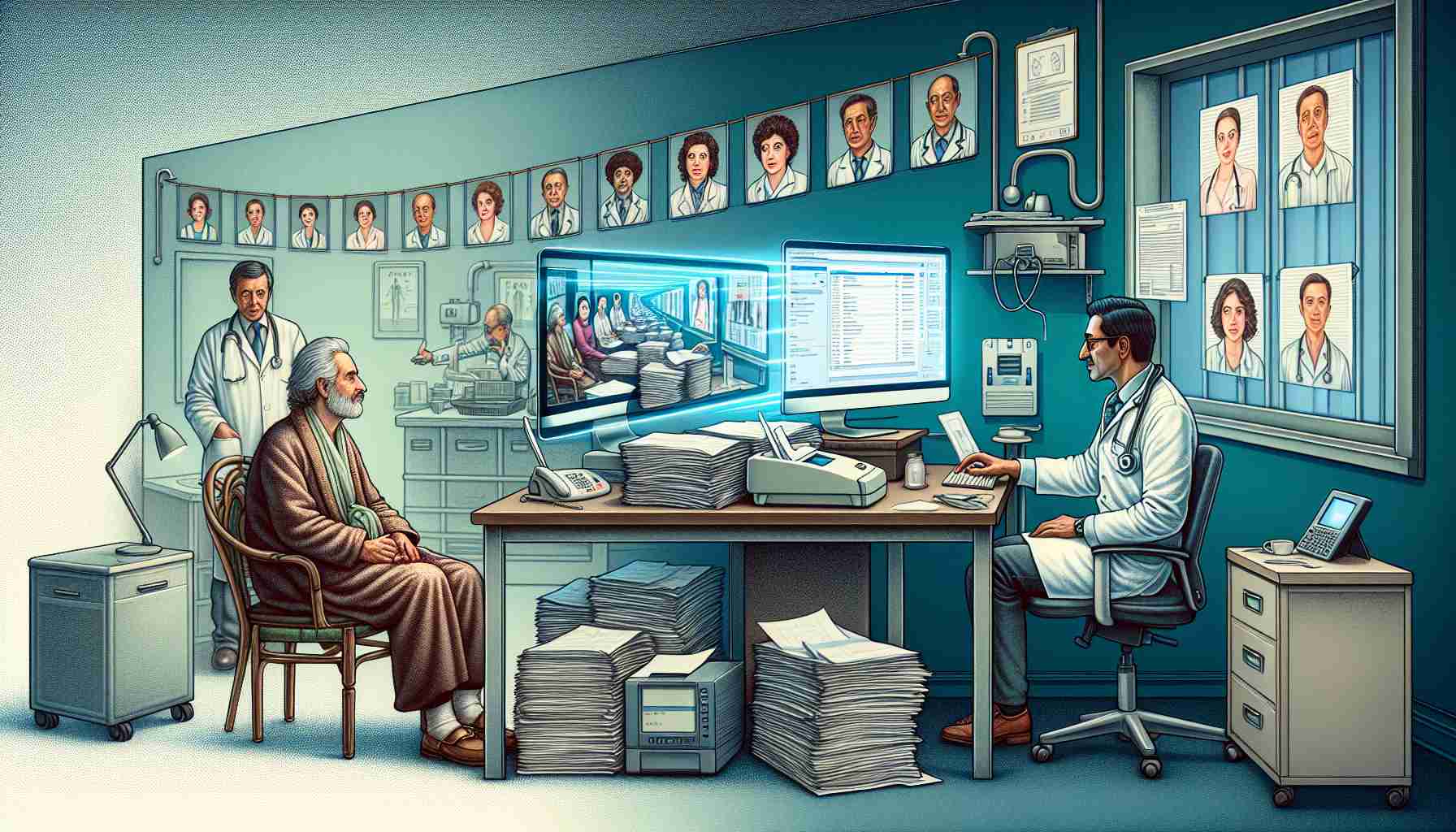Advancements in AI technology are transforming the medical industry, with artificial intelligence avatars leading the charge into the future of personalized healthcare. These avatars, like the one developed by Soul Machines, are designed to provide custom-tailored and interactive experiences during virtual consultations and postoperative rehabilitation. With the ability to maintain eye contact, nod in agreement, and smile reassuringly, they can recommend remedies such as ginger tea or over-the-counter medications based on the patient’s verbal feedback.
At the core of their conversational capabilities is a decade’s worth of research into cognitive modeling, striving to simulate learning and emotional response. Thus, through advanced software, the expressions and reactions of these AI figures closely mimic human behavior, drawing on experiences from the visual effects industry in New Zealand. These interactions are enhanced by integrating tools like large language models (LLMs), including versions of OpenAI’s ChatGPT.
AI in the healthcare industry is posed to address growing demands where the human touch is necessary but limited by the availability of professionally trained human resources. Greg Cross from Soul Machines is optimistic about the role of AI avatars in fostering effective communication between companies and customers, particularly within healthcare sectors.
Meanwhile, health-related inquiries continue to flood internet search engines. Personalized chatbots like Florence by the WHO and symptom-checking technologies like Ada Health’s bot demonstrate growing efforts to provide accurate health information and diagnostics. Despite their utility, the algorithms behind such chatbots may not be as sophisticated as recent LLMs, yet they boast reliability and regulatory approval owing to their transparent and explainable reasoning mechanisms.
The burgeoning capabilities of AI in medical diagnostics have been underlined by studies showing that the ChatGPT’s performance on medical exams has reached levels comparable to that of medical students. However, transparency and safety concerns loom over the use of LLMs for medical advice, indicating a need for careful regulation and applications that ensure patient safety without compromising the advantages offered by advancing AI technologies.
The Evolution of Digital Health Consultations
Digital health consultations, which include telemedicine and virtual doctor visits, have become increasingly prevalent due to advancements in technology and the need for more convenient and accessible healthcare options. These consultations can occur through video calls, messaging platforms, and even through interactive AI avatars that simulate human interaction to enhance the patient experience.
Key Challenges and Controversies
One of the primary challenges facing digital health consultations is ensuring the accuracy and reliability of medical advice provided through AI systems. Despite their growing sophistication, AI algorithms may sometimes lack the depth of understanding and intuition that human physicians possess. Ethical considerations regarding patient privacy and data security are also of paramount importance, as digital platforms collect sensitive health information.
Controversies have arisen around the potential for AI to replace human practitioners, with concerns about the loss of the irreplaceable human touch in healthcare. Additionally, there is ongoing debate about the extent to which AI should be involved in making diagnoses and treatment recommendations without direct human oversight.
Advantages
- Increased accessibility: Patients with mobility issues or those living in remote areas can receive medical advice without traveling.
- Cost-effectiveness: Virtual consultations may reduce the cost of healthcare by minimizing the need for physical infrastructure and support staff.
- Efficiency: AI-powered health consultations can streamline the diagnosis process and offer immediate responses to patient inquiries, potentially reducing wait times.
- Personalization: AI technology can help tailor advice and treatment plans to individual needs based on vast amounts of data.
Disadvantages
- Limited human interaction: AI cannot fully replicate the nuanced care and empathy that human healthcare providers offer.
- Data privacy concerns: The collection and processing of health data by AI systems may raise privacy and security issues.
- Potential for errors: AI algorithms are not infallible and may sometimes provide incorrect or inappropriate medical advice.
- Regulatory hurdles: Medical AI applications require stringent regulatory compliance to ensure safety and efficacy, which can impede rapid innovation.
Further Reading
For individuals seeking more information on the digital evolution of health consultations, here are a few authoritative sources to explore:
– World Health Organization (WHO): For global health standards and guidelines related to digital health.
– Office of the National Coordinator for Health Information Technology (ONC): For information on health IT, including telemedicine.
– American Medical Association (AMA): Offers insights into the integration of AI into healthcare practice.
– U.S. Department of Health & Human Services (HHS): For federal regulations governing the use of digital technologies in healthcare.
The source of the article is from the blog kewauneecomet.com

